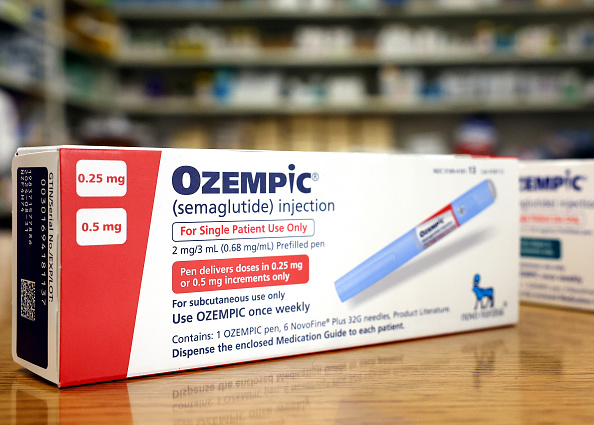Health
New Diabetes Drugs Offer Hope for Young Patients in New Zealand

Diabetes New Zealand has raised alarms about a potential “major health crisis” as more young people are diagnosed with type 2 diabetes. This month, recognized as Diabetes Action Month, highlights the urgent need for awareness and intervention as the prevalence of this disease among youth continues to rise.
Dr. Craig Jefferies, a paediatric endocrinologist at Auckland’s Starship Children’s Hospital, recently discussed the promising outcomes of new weight loss and diabetes medications during an interview with RNZ’s Morning Report program. He noted that while these drugs are currently not funded by the government, they could prove to be “life-changing” for young individuals battling diabetes.
According to Dr. Jefferies, the latest trials indicate that these medications are “very effective” with a low side-effect profile. Although the drugs are costly, he emphasized that the number of youth diagnosed with type 2 diabetes is relatively small, which could mitigate the financial burden on the healthcare system.
Type 2 diabetes manifests more aggressively in children and teenagers, leading to severe complications at a much earlier stage compared to adults. Dr. Jefferies warned, “They develop complications much earlier and much faster than adults, and their risk of blindness, amputations, kidney failure, and heart disease is going to be far higher than their parent or previous generation.” Without timely diagnosis and proper support, the consequences can be dire.
Certain demographics are more susceptible to type 2 diabetes, particularly those who are Māori, Pasifika, or of Asian descent, especially if their mothers had the condition during pregnancy. Dr. Jefferies reiterated that type 2 diabetes in young people is not merely a lifestyle issue; it is influenced by intricate genetic, social, and environmental factors beyond their control. While weight is a significant factor, it is not the sole cause.
Historically, type 2 diabetes was uncommon among children, leading many general practitioners to overlook it. Now, the symptoms—such as excessive thirst, frequent urination, extreme fatigue, or unexplained weight loss—must be included in diagnostic considerations. Early detection is crucial to preventing severe complications.
Heather Verry, chief executive of Diabetes NZ, pointed out that while the majority of the estimated 6000 cases of diabetes in individuals younger than 25 are type 1, the increasing number of type 2 cases should serve as a “wake-up call” for policymakers. She stressed that action is required before the situation escalates.
“We cannot afford to wait until the numbers become overwhelming,” Verry stated. “The time to act is now to put prevention, education, and support in place for these valued members of our community.” She highlighted the absence of tailored programs or resources for young people living with type 2 diabetes, advocating for age-appropriate and practical education that addresses mental health and reduces stigma.
These children deserve every opportunity to thrive, and with the right support, there is hope for a healthier future. The advancements in diabetes treatment underscore the importance of continued research and funding to combat this growing health issue among the youth.
-

 World3 months ago
World3 months agoTest Your Knowledge: Take the Herald’s Afternoon Quiz Today
-

 Sports3 months ago
Sports3 months agoPM Faces Backlash from Fans During Netball Trophy Ceremony
-

 Lifestyle3 months ago
Lifestyle3 months agoDunedin Designers Win Top Award at Hokonui Fashion Event
-

 Sports3 months ago
Sports3 months agoLiam Lawson Launches New Era for Racing Bulls with Strong Start
-

 Lifestyle3 months ago
Lifestyle3 months agoDisney Fan Reveals Dress Code Tips for Park Visitors
-

 Health3 months ago
Health3 months agoWalking Faster Offers Major Health Benefits for Older Adults
-

 World3 months ago
World3 months agoCoalition Forms to Preserve Māori Wards in Hawke’s Bay
-

 Politics3 months ago
Politics3 months agoScots Rally with Humor and Music to Protest Trump’s Visit
-

 Top Stories3 months ago
Top Stories3 months agoUK and India Finalize Trade Deal to Boost Economic Ties
-

 Entertainment3 months ago
Entertainment3 months agoExperience the Excitement of ‘Chief of War’ in Oʻahu
-

 World3 months ago
World3 months agoHuntly Begins Water Pipe Flushing to Resolve Brown Water Issue
-

 Science3 months ago
Science3 months agoNew Interactive Map Reveals Wairarapa Valley’s Geological Secrets









